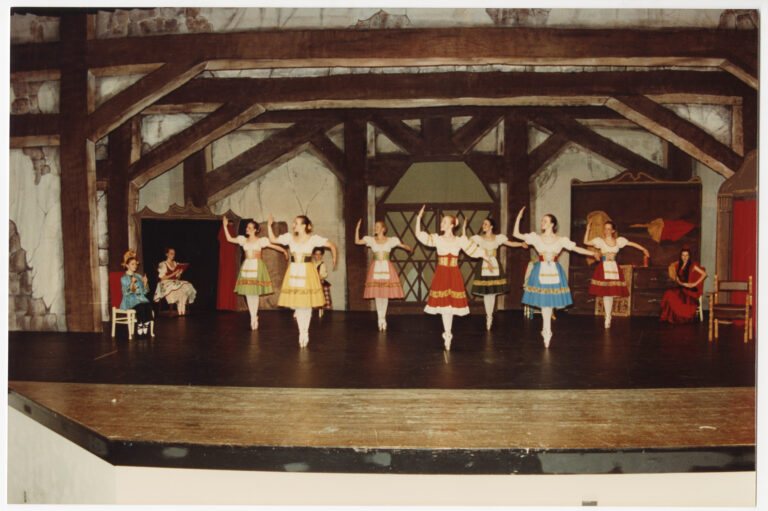
For Tamaira Sandifer—affectionately known as “Miss Tee”—founding her nonprofit, Studio T Arts & Entertainment, began humbly as a small hip-hop class of four students at a park in Sacramento, California, in 2003. Now, it has flourished into a youth arts program that’s reached nearly 200,000 children around the globe.
Sandifer’s mission is to use the arts, media, and entrepreneurship to help youth have the ability to monetize their skill sets, which empowers them to produce for themselves. Studio T targets communities where young people are being lost to gang violence, suicide, and lack of resources. The organization aims to help the whole family, not just the individual child. Whether the students are taking dance, media, or music classes, parents receive financial help, budgeting classes, family management workshops, and other free services. “We’re boots on the ground, and we use the arts and dance to [bring solutions],” says Sandifer.
In January 2024, Studio T opened its Sacramento headquarters, known as the “Innovation Factory.” At 36,000 square feet, the new location takes up an entire city block and includes media rooms, podcast studios, and community spaces so students can learn how to promote their work. But Sandifer’s reach extends beyond Sacramento and California—in the works are Studio T locations in Tulsa, Oklahoma; Philadelphia, Pennsylvania; Harlem, New York; and Atlanta, Georgia, with the goal to open in two new cities by 2025.
Sandifer has created one of the largest dance nonprofits in the U.S., landing her on “(For)bes The Culture 50 Champions” list, which makes it all the more surprising to know she has no formal dance training or professional experience. Growing up, her family couldn’t afford dance classes, so Sandifer learned by watching Fame, Breakin’, and “Soul Train,” citing Debbie Allen as her dance hero. But this hasn’t kept her from creating some of the most successful hip-hop dancers of today—including Leon “Kida” Burns (the Season 13 winner of “So You Think You Can Dance”), members of the Jabbawockeez crew, and commercial dancers who have traveled with icons such as Jennifer Lopez, Beyoncé, and Usher.
Here, Sandifer shares her entrepreneurship tips and advice for positively influencing young lives through dance.

How has Studio T impacted the lives of students, particularly through dance?
We have kids who’ve come from under-resourced parts of the community who are now earning six figures and shifting the trajectory of their families’ lives. We also have a student who has gone from being in the welfare system to becoming a “So You Think You Can Dance” winner, living in a more affluent part of town, and coming back to help other people with the recipe they followed. Then we have students who were homeless because of their abusive families and are using the gift of [dance] to monetize their skill sets on social media. Now, they have sponsors, supporters, partners, and their own place to live. And we also have students who were in juvenile detention centers and are now performing with headlining dance companies in Las Vegas.
Any tips for raising funds as a dance nonprofit?
Treat it like a business, not a charity. Even though it’s a nonprofit, that doesn’t mean you’re not supposed to generate revenue. It’s a business—that’s number one. Two, value your product. You’re part of a multibillion-dollar economy called dance. Dance is one of the number producing economies in the world. Value what you bring to the table. If you’re bringing dance to the table, you should be getting a piece of that multibillion-dollar pie. Insist on it.
Most often people subscribe to the narrative of starving artists or dance for exposure. I wouldn’t let my young people devalue themselves or give their gifts for free. You should have your rates set and the mindset that even if you don’t get your full fee, you get something. It gives your program value because people are willing to compensate you, but it also reinforces your value to you.

What advice would you like to share with other dance educators?
Don’t limit yourself and what you have to offer by way of dance, specifically recitals and competitions. A multitude of careers can potentially come out of [students] having access to dance. There are so many opportunities that they can gain and so many career options. You have the ability to do more than just [teach] a dance routine in a recital. And consider being a little more involved communally. I founded an entire dance day (“California’s National Day of Dance”). Think beyond the box.





